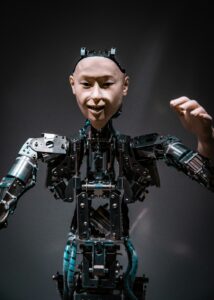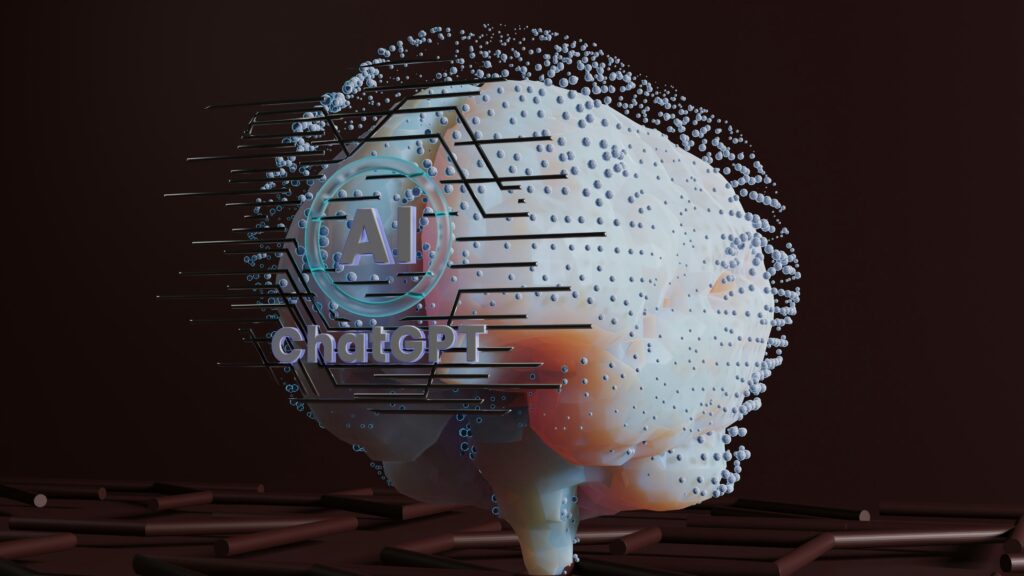5 Searing Key Innovations Marked Down in the Future of AI
Table of Contents
- 1. The Current State of AI
- 2. The Role of AI in the Next Decade
- 3. AI in Scientific Research
- 4. The Rise of Human-AI Collaboration
- 5. AI for Public Good
- 6. Ethical and Social Challenges of AI
- 7. AI and the Global Economy
- 8. Looking Forward: The Interface of AI and Innovation
- 9. AI and Sustainability: Driving Environmental Solutions
- 10. AI and Healthcare: Transforming Medicine
- 11. Ethics in AI: Navigating the future of responsible AI development
- 12. AI in Space Exploration: Exploring the Universe
- 13. AI and Automation: The Future of Work
- 14. AI and Privacy: Protecting Personal Data
- 15. AI and the Global Economy: A Catalyst for Growth
- 16. The Future of AI Innovation: What`s Next?
Artificial Intelligence (AI) has emerged as one of the most disruptive forces in the world. It is reshaping industries, revolutionizing the way we live, and offering huge potential for future innovations. As AI technology advances, its impact on various sectors, including healthcare, finance, entertainment, and education, is becoming more pronounced. The convergence of AI with other cutting-edge technologies is expected to propel humanity into an exciting era of unprecedented growth, creativity, and efficiency.
But what does the future of AI hold? How will continued developments impact innovation and what role will they play in shaping the future? In this blog post, we explore the future of AI and the revolutionary possibilities it brings.
1.The current state of AI: a snapshot
Before looking to the future, it is important to understand where we are with AI today. AI has evolved significantly thanks to advances in machine learning (ML), deep learning (DL), and natural language processing (NLP). These technologies are driving advances in AI across many industries, making AI a major player in areas such as healthcare, finance, transportation, and manufacturing.
Key AI applications today:
- Healthcare: AI-powered diagnostics, predictive models for disease occurrence, and personalized treatment.
- Finance: AI in algorithmic trading, fraud detection, and customer service.
- Manufacturing: AI-powered robotics and predictive maintenance.
- Transportation: Autonomous vehicles and intelligent traffic management systems.
Despite these impressive achievements, the full potential of AI technology has yet to be harnessed. Let’s take a closer look at the future of AI and innovation.
2.The role of AI in the next decade
Over the next decade, AI technologies are expected to play a key role in several key areas. These advancements will help drive economic growth, improve quality of life, and solve complex challenges across industries.
a) Increased automation and efficiency
AI will drive greater automation in sectors that rely heavily on repetitive tasks. AI systems manage everything from data entry to customer support to resolving complex problems. Key benefits include:
- Streamlining processes and reducing costs.
- Allowing businesses to focus on innovation and strategic decision-making.
b) Personalization at scale
AI will power personalized experiences and deliver tailored recommendations in real time. The possible applications are wide-ranging and can be found in the following sectors:
- Retail and e-commerce: AI enables personalized shopping experiences and dynamic pricing strategies.
- Healthcare: AI enables precision medicine by providing individualized treatments based on an individual’s genetic and medical history.
- Education: AI-based adaptive learning systems personalize education to meet the unique needs of each student.
c) AI and creativity: A new era of innovation
AI opens up new creative possibilities:
- AI in the arts: AI is already being used to create digital art, music and literature.
- Design and engineering: AI helps design more efficient products, structures and systems through the use of advanced optimization algorithms.
- Architecture: AI-powered design tools help architects create more sustainable and innovative structures.
3.AI in Scientific Research
AI has the potential to accelerate scientific discoveries by processing huge data sets at speeds far beyond human capabilities. This ability is particularly effective in areas such as medicine, climate science, and space exploration.
Key AI applications in scientific research:
- Drug discovery: AI models can predict how different compounds will interact with the human body, greatly accelerating the drug development process.
- Climate change modeling: AI can more accurately predict climate trends, allowing for better decision-making to combat global warming.
- Space exploration: AI helps astronomers process massive amounts of space data to identify exoplanets and make new discoveries.
4.The rise of human-AI collaboration
As AI technology advances, human-AI collaboration is becoming more common. Rather than replacing human jobs, AI augments human capabilities and increases overall productivity.
Benefits of human-AI collaboration:
- Increased efficiency: As AI tools take over mundane tasks, humans can focus on more challenging and creative work.
- Smarter Decisions: AI provides real-time data analysis to improve decision-making across industries.
- Enhanced Creativity: AI collaborates with creative professionals to develop new ideas, designs, and innovations.
5.AI for Public Good: Addressing Global Challenges
AI has the potential to address pressing global issues such as poverty, inequality, and access to critical services like healthcare and education.
Potential Uses of AI for Public Good:
- Disaster Relief: AI can optimize resource allocation during natural disasters by analyzing real-time data and predicting areas where assistance is most needed.
- Education: AI-powered learning systems can provide quality education to underserved areas and make knowledge accessible worldwide.
- Healthcare: AI can improve access to healthcare in rural and remote areas through telemedicine and AI-guided diagnosis.

6.Ethical and Social Challenges of AI
With the advent of AI technologies, several ethical concerns need to be addressed to ensure AI is developed responsibly and inclusively. The most pressing challenges include:
Key ethical issues in AI development
- Job loss: As more tasks are automated by AI, it is important to consider the economic impact on workers whose jobs may be lost.
- Solution: Invest in worker retraining and upskilling programs.
- Bias in AI systems: AI models trained on biased data can lead to unfair outcomes.
- Solution: Ensure diversity in training datasets and conduct fairness audits of AI systems.
- Privacy and security: As AI processes large amounts of personal data, concerns about privacy and data security are growing.
- Solution: Increased regulation of data use and the introduction of secure AI architectures.
- Accountability: As AI systems become more autonomous, it will be important to establish accountability mechanisms when AI makes decisions that affect individuals and society.
- Solution: Clear guidelines on the responsibility and liability of AI in the decision-making process.
7.AI and the Global Economy
AI will have a profound impact on the global economy by driving productivity gains, creating new industries, and shaping the future of work. However, the benefits of AI innovation will not be evenly distributed.
How AI will impact the global economy:
- Job creation: As certain jobs are automated, new roles and industries focused on developing, implementing, and maintaining AI are emerging.
- Innovation and competitiveness: Countries that invest in AI research and development will gain a competitive advantage in the global marketplace.
- Global inequalities: Developed countries are already using AI, but developing countries need to invest in AI infrastructure to avoid widening the technology gap.
Ensure inclusive growth: To ensure that AI benefits everyone, countries must:
- Promote international collaboration on AI research.
- Develop policies that promote equitable access to AI tools.
-
Invest in education and retraining programs.

8.Looking forward: The interface of AI and innovation
The relationship between AI technology and innovation is symbiotic. AI will continue to drive innovation, but new technologies such as quantum computing and biotechnology will take AI to even greater heights. This synergy will create a future where new ideas and possibilities are constantly realized.
Key developments coming up:
- Quantum computing: Quantum computers will enable AI to process even more complex data at lightning speeds, making current limitations in AI research a thing of the past.
- Biotechnology and AI: AI will play a key role in developing personalized therapies, genome editing, and improving healthcare systems.
Responsible AI Development: The future of AI must be shaped by ethical guidelines and global collaboration. Governments, organizations, and AI researchers must ensure that AI development is conducted responsibly, with a focus on fairness, transparency, and inclusivity.
Conclusion: The Future of AI and Innovation
AI continues to evolve and is expected to bring about profound changes in all sectors. From enhancing creativity to solving global challenges, the future of AI is bright. But it is humanity’s responsibility to manage its development responsibly and ensure that it benefits society as a whole. With the right approach, AI innovation can enable a future that will bring unprecedented growth, creativity, and positive change.
The future of AI and innovation is full of exciting opportunities, but it requires careful thought, planning, and collaboration to maximize the benefits and minimize the risks.
9.AI and Sustainability: Driving Environmental Solutions
AI is becoming a key component in solving global environmental problems. Leveraging the computing power of AI, industries can develop sustainable solutions that minimize waste, reduce carbon emissions, and promote responsible resource management.
Key AI applications in sustainability:
- AI to optimize renewable energy: AI systems can more efficiently manage renewable energy sources such as solar and wind, optimizing energy production and use.
- AI-powered environmental monitoring: AI technologies can monitor pollution levels, track climate change, and predict natural disasters so appropriate measures can be taken to curb environmental damage.
- AI for waste management: AI-driven systems improve recycling processes and waste reduction strategies, promoting a circular economy and minimizing landfill use.
Integrating AI into sustainability efforts will move industry toward a greener, more environmentally friendly future.
10.AI and Healthcare: Transforming Medicine
AI in healthcare is more than just a trend, it’s a transformative force. AI technologies improve diagnosis, treatment options, patient care, and even new drug discovery, resulting in more precise, timely, and personalized medical treatment.
Key AI applications in healthcare:
- AI for medical imaging: AI algorithms analyze medical images (e.g., x-rays, MRIs) to detect abnormalities such as tumors, fractures, and other medical conditions more accurately than humans.
- Personalized medicine: AI models analyze genetic data to predict the most effective treatment for individual patients, improving treatment outcomes.
- AI for drug discovery: By processing large datasets, AI can predict which compounds will be effective in treating diseases, accelerating drug development.
The future of AI in healthcare will drive advances in precision medicine, improving patient care and reducing healthcare costs worldwide.
11. Ethics in AI: Navigating the future of responsible AI development
As AI advances, it will be essential to address ethical concerns. Ensuring that AI systems are fair, transparent, and used responsibly is key to building trust and ensuring the technology benefits everyone.
Key ethical issues in AI development:
- Bias in AI algorithms: AI systems can perpetuate biases if trained on biased datasets. Addressing this issue requires ensuring diversity in training data and conducting fairness tests.
- AI and job loss: As automation increases, AI may replace certain jobs, creating economic challenges. Solutions such as retraining programs and the creation of new jobs should also be on the table.
- Privacy concerns about AI: AI’s ability to process large amounts of personal data raises concerns about privacy and data security. Transparent data policies and secure AI architectures are essential to protect users.
Ensuring ethical AI development will enable society to embrace AI while minimizing risks and maximizing benefits.
12.AI in Space Exploration: Exploring the Universe
AI is playing an increasingly important role in space exploration. From autonomous spacecraft to real-time data processing, AI is revolutionizing how we explore space and manage space missions.
Key AI applications in space exploration:
- Autonomous spacecraft navigation: AI allows spacecraft to make autonomous decisions in real time, such as adjusting their route or responding to emergencies.
- AI for data analysis: AI systems can process vast amounts of space data faster than humans, helping scientists make new discoveries more efficiently, such as identifying exoplanets and signs of life.
- AI in astrobiology: AI can be used to analyze environmental conditions on other planets and determine the possible presence of extraterrestrial life.
With AI at the forefront of space exploration, humanity will be able to unlock the mysteries of the universe and expand its reach beyond Earth.

13.AI and Automation: The Future of Work
AI-driven automation is transforming industries and the workforce. While automation poses challenges for the labor market, it also creates new opportunities for innovation and efficiency across sectors.
Key benefits of AI automation:
- Increased productivity: AI simplifies repetitive tasks, allowing employees to focus on higher-level decision-making and creative work.
- New job roles: The rise of AI is creating new roles that require new skills and training in areas such as AI maintenance, development, and ethics.
- Improved decision-making: AI systems provide real-time insights and data-driven recommendations to improve strategic decision-making in businesses and governments.
The future of AI-driven automation will lead to increased productivity, new job opportunities, and a redefinition of the workplace.
14.AI and Privacy: Protecting Personal Data
As AI systems process large amounts of personal data, concerns about privacy and data security become increasingly urgent. Protecting individual privacy while ensuring efficient AI operations is a major challenge.
Privacy Concerns and AI:
- Data Protection: Because AI relies on large datasets, it is important to protect sensitive personal information. Encryption, anonymization, and strict data protection policies are key.
- Regulating the Use of AI: Governments and organizations need to establish clear policies and regulations to ensure AI technologies respect data protection rights.
- AI algorithm transparency: Transparency in AI algorithms allows individuals to understand how their data is used and how decisions are made by AI systems.
Protecting privacy in the AI era is essential to building trust in these technologies and ensuring they are used ethically and responsibly.
15.AI and the Global Economy: A Catalyst for Growth
AI isn’t simplest remodeling industries, however it’s also a key motive force of world financial boom. By enhancing efficiency, fostering innovation, and developing new industries, AI has the capability to reshape the worldwide economic system.
Impact of AI at the Global Economy:
- Economic Growth: AI will make a contribution to accelerated productiveness and new marketplace possibilities, using GDP boom in nations that undertake AI technologies.
- Global Competition: Nations making an investment in AI studies and improvement will advantage a aggressive side in industries like healthcare, finance, and manufacturing.
- AI in Emerging Markets: AI can assist growing nations leapfrog conventional infrastructure, using innovation in fields like agriculture, education, and healthcare.
The international economic system will see good sized changes as AI hurries up financial boom and drives new possibilities for companies and countries alike.
16.The Future of AI Innovation: What`s Next?
As AI keeps to evolve, the opportunities for innovation appear endless. The destiny of AI holds thrilling improvements that would revolutionize each issue of our lives, from healthcare to area exploration.
Key Future AI Innovations:
- Quantum Computing and AI: The integration of quantum computing will exponentially boom AI`s processing power, unlocking new abilities and fixing issues as soon as notion impossible.
- AI-Driven Robotics: AI will play a vital function in robotics, permitting machines to carry out extra complicated duties autonomously in regions like healthcare, logistics, and manufacturing.
- AI and Brain-Computer Interfaces: Future AI structures may want to combine with human brains, beginning new doorways for communication, cognition enhancement, and scientific treatments.
The destiny of AI innovation guarantees to carry unparalleled improvements, converting the manner we live, work, and engage with the arena round us.
Conclusion: Embracing the Future of AI Innovation
AI`s transformative capability is undeniable. From healthcare to sustainability, the destiny of AI holds first-rate promise. As AI keeps to evolve, it`s critical for governments, organizations, and society to make certain accountable improvement, specializing in moral concerns and making sure equitable advantages for all. By embracing AI innovation responsibly, we are able to liberate a destiny full of endless opportunities.



